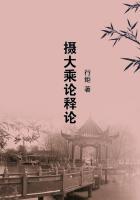Simple, brave, resolute, manly, a little given to "robustiousness,"Kingsley transfigured all these qualities by possessing the soul and the heart of a poet. He was not a very great poet, indeed, but a true poet--one of the very small band who are cut off, by a gulf that can never be passed, from mere writers of verse, however clever, educated, melodious, ingenious, amiable, and refined. He had the real spark of fire, the true note; though the spark might seldom break into flame, and the note was not always clear. Never let us confuse true poets with writers of verse, still less with writers of "poetic prose." Kingsley wrote a great deal of that-perhaps too much: his descriptions of scenes are not always as good as in Hereward's ride round the Fens, or when the tall, Spanish galleon staggers from the revenge of man to the vengeance of God, to her doom through the mist, to her rest in the sea. Perhaps only a poet could have written that prose; it is certain no writer of "poetic prose" could have written Kingsley's poems.
His songs are his best things; they really are songs, not merely lyric poems. They have the merit of being truly popular, whether they are romantic, like "The Sands o' Dee," which actually reproduces the best qualities of the old ballad; or whether they are pathetic, like the "Doll's Song," in "Water Babies"; or whether they attack an abuse, as in the song of "The Merry Brown Hares"; or whether they soar higher, as in "Deep, deep Love, within thine own abyss abiding"; or whether they are mere noble nonsense, as in "Lorraine Loree":-"She mastered young Vindictive; oh, the gallant lass was she, And kept him straight and won the race, as near as near could be;But he killed her at the brook against a pollard willow tree;Oh, he killed her at the brook, the brute, for all the world to see, And no one but the baby cried for poor Lorraine Loree."The truth about Charles Kingsley seems to be that he rather made a brave and cheery noise in this night-battle of modern life, than that he directed any movement of forces. He kept cheering, as it were, and waving his sword with a contagious enthusiasm. Being a poet, and a man both of heart and of sentiment, he was equally attached to the best things of the old world and to the best of the new world, as far as one can forecast what it is to be. He loved the stately homes of England, the ancient graduated order of society, the sports of the past, the military triumphs, the patriotic glories. But he was also on the side of the poor: as "Parson Lot" he attempted to be a Christian Socialist.
Now, the Socialists are the people who want to take everything; the Christians are the persons who do not want to give more than they find convenient. Kingsley himself was ready to give, and did give, his time, his labour, his health, and probably his money, to the poor. But he was by no means minded that they should swallow up the old England with church and castle, manor-house and tower, wealth, beauty, learning, refinement. The man who wrote "Alton Locke," the story of the starved tailor-poet, was the man who nearly wept when he heard a fox bark, and reflected that the days of fox-hunting were numbered. He had a poet's politics, Colonel Newcome's politics. He was for England, for the poor, for the rich, for the storied houses of the chivalrous past, for the cottage, for the hall; and was dead against the ideas of Manchester, and of Mr. John Bright. "My father," he says in a letter, "would have put his hand to a spade or an axe with any man, and so could I pretty well, too, when I was in my prime; and my eldest son is now working with his own hands at farming, previous to emigrating to South America, where he will do the drudgery of his own cattle-pens and sheepfolds; and if I were twenty-four and unmarried I would go out there too, and work like an Englishman, and live by the sweat of my brow."This was the right side of his love of the Vikings; it was thus THEYlived, when not at war--thus that every gentleman who has youth and health should work, winning new worlds for his class, in place of this miserable, over-crowded, brawling England. This, I think, was, or should have been, the real lesson and message of Kingsley for the generations to come. Like Scott the scion of an old knightly line, he had that drop of wild blood which drives men from town into the air and the desert, wherever there are savage lands to conquer, beasts to hunt, and a hardy life to be lived. But he was the son of a clergyman, and a clergyman himself. The spirit that should have gone into action went into talking, preaching, writing--all sources of great pleasure to thousands of people, and so not wasted. Yet these were not the natural outlets of Kingsley's life: he should have been a soldier, or an explorer; at least, we may believe that he would have preferred such fortune. He did his best, the best he knew, and it is all on the side of manliness, courage, kindness.
Perhaps he tried too many things--science, history, fairy tales, religious and political discussions, romance, poetry. Poetry was what he did best, romance next; his science and his history are entertaining, but without authority.
This, when one reads it again, seems a cold, unfriendly estimate of a man so ardent and so genuine, a writer so vivacious and courageous as Kingsley. Even the elderly reviewer bears to him, and to his brother Henry, a debt he owes to few of their generation. The truth is we should READ Kingsley; we must not criticise him. We must accept him and be glad of him, as we accept a windy, sunny autumn day--beautiful and blusterous--to be enjoyed and struggled with. If once we stop and reflect, and hesitate, he seems to preach too much, and with a confidence which his knowledge of the world and of history does not justify. To be at one with Kingsley we must be boys again, and that momentary change cannot but be good for us.
Soon enough--too soon--we shall drop back on manhood, and on all the difficulties and dragons that Kingsley drove away by a blast on his chivalrous and cheery horn.














